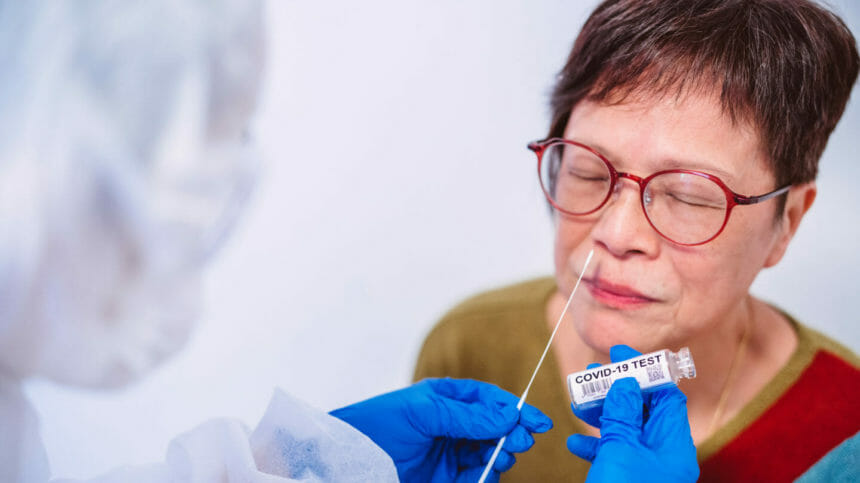
Just how useful is a second try when it comes to rapid COVID-19 antigen tests? Very much so, a new workplace study finds.
Investigators offered repeat antigen tests to employees participating in a workplace screening program. They checked the results against highly sensitive RT-qPCR laboratory tests for SARS-CoV-2. In cases where the second antigen test also gave a positive result, the lab test confirmed that accuracy had increased from 38% (with the single antigen test) to 92% for true-positive results.
Likewise, when the result of the first antigen test was positive and the result of the second antigen test was negative, lab tests confirmed negative results for 95% of the tests. The accuracy of a second antigen test overall was 94%, investigators estimated.
As the researchers expected, test results appeared to be more accurate when community infection rates were high. But the value of the second antigen test remained high no matter the level of probable accuracy, they added.
These results may help employers decide how best to employ rapid antigen tests — especially in settings where quick results are important and widespread PCR testing is cost prohibitive, the researchers said.
“As employers consider the best use of onsite or at-home rapid antigen testing, a second antigen test may be useful for more accurate diagnosis of COVID-19 infection and for guiding intervention,” they wrote.
Full findings were published in JAMA Network Open.




